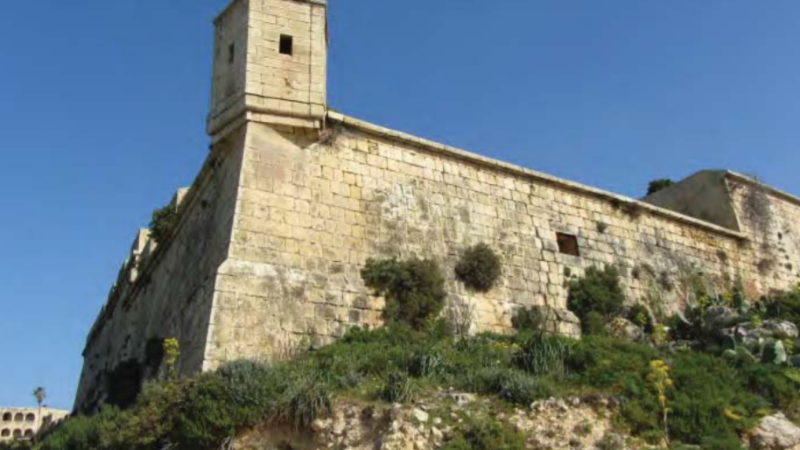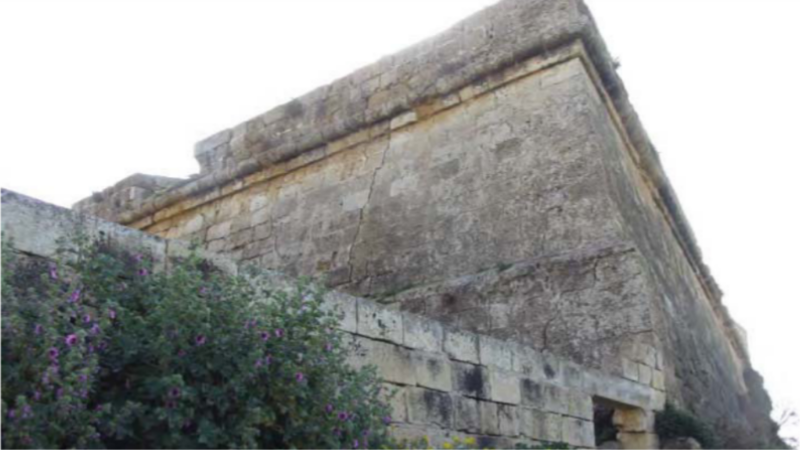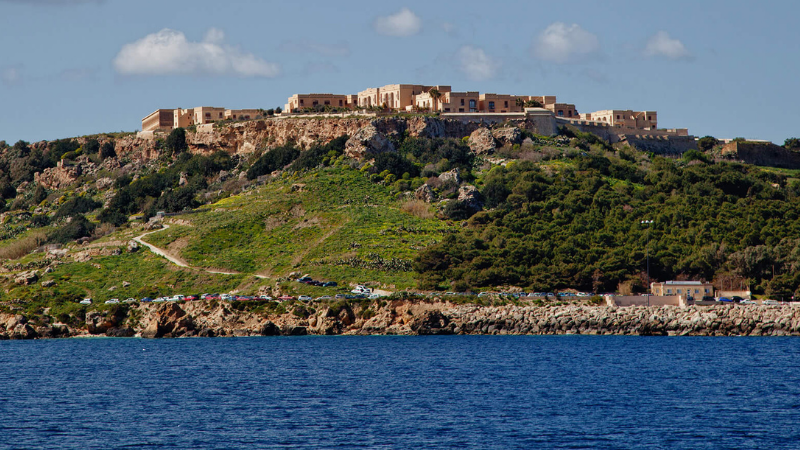Much needed restoration works on the fortifications of Fort Chambray in Gozo have been stalled since 2015 as the Planning Authority took a full six years to approve the necessary permits, The Shift is informed.
As recent media reports claimed that some areas of the bastions are in danger of collapse due to further decay and lack of restoration, the architect responsible for the works, Alex Torpiano, told The Shift that the situation is not as bad as reported.
Admitting that there has been no additional restoration work since 2015, Torpiano, who is also the President of heritage NGO Din l-Art Ħelwa, said some restoration work has already been carried out at the 18th century fort – around €650,000 spent between 2005 and 2014. Following the submission of an extensive restoration method statement document presented in 2015, the Planning Authority issued its permit in July 2021.
“The problems with Fort Chambray do not really arise from neglect or abandon as presented in some sections of the media recently,” Torpiano told The Shift.

“Unfortunately, the geology of the site is such that there is significant continuous movement on the substructure around the periphery, particularly in the west-facing bastions.”
“These movements require more than normal restoration works, but substructure engineering interventions, also from the outside of the perimeter of the fort. The owner contends that the cost of these works goes beyond the Lease Agreement obligations – which strictly speaking have been fulfilled,” the architect insisted.
A never-ending project
Built during the Knights era in the 18th century as Gozo’s main fortification, in 1992 the government awarded a 99-year concession to Fort Chambray Ltd, made up of a Monaco-registered company controlled by an Italian lawyer, Roberto Memmo. The government had kept a minority shareholding in the project although it had no real control over its development.
The concession tied the new owners to specific time frames, including restoration, so the fort would be turned into a mixed tourism and residential development.

Yet, as often happens with such concessions in Malta, the project was stalled halfway through, particularly due to a lack of funding.
In 2004, Gozitan businessmen Michael Caruana, who also owns the Calypso Hotel among other businesses, bought the company holding the concession, including the government’s shares, to continue the development.
While building and selling dozens of residential units built in the fort, the company had also started intense restoration works that were halted in 2015. The opening of a hotel, which was part of the original plan, has never materialised.
In 2015, Caruana, on behalf of Fort Chambray Ltd, filed an application for the restoration of fortifications and remedial works to the old buildings which also included a master plan on all the necessary restoration.
No works have as yet started following the permit issued by the Planning Authority.













